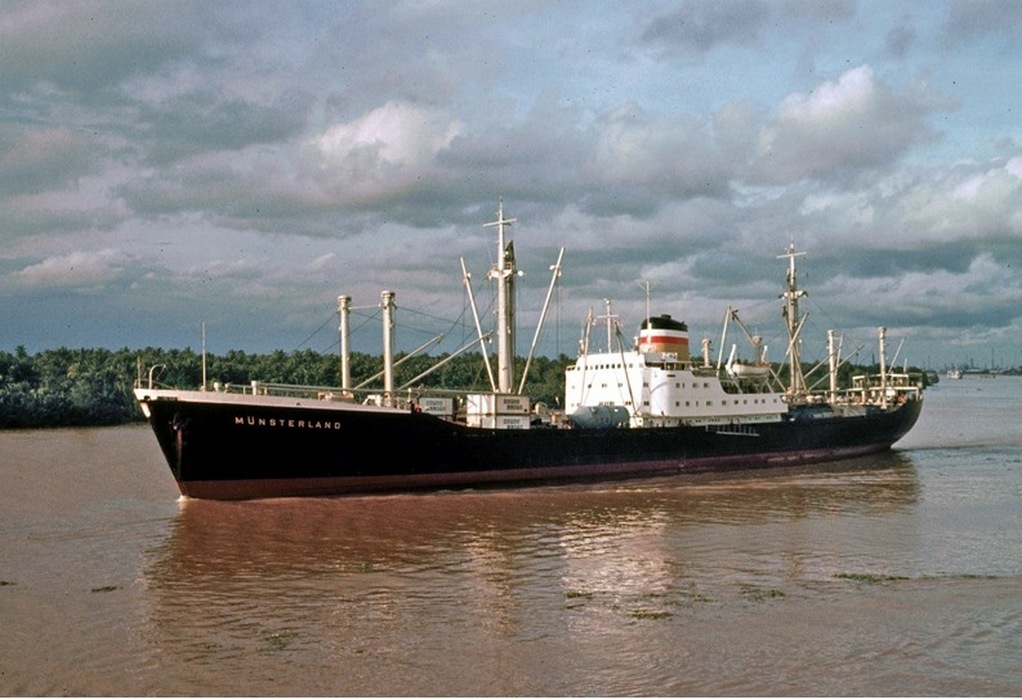A conversion project to allow the ferry MS Münsterland to consume liquefied natural gas (LNG) as a bunker fuel which started on 19 May 2020 has recently reached a milestone, according to operator AG EMS.
The project is funded by the Federal Ministry of Transport and Digital Infrastructure as part of the implementation of the Federal Government’s Mobility and Fuel Strategy (MKS). The funding measure is coordinated by NOW GmbH.
According to the operator, the converted ferry is now floating again and is in the midst of conducting trial tests with delivery being planned for the end of January 2022.
Tests include all components of the new propulsion system from the gas tank, generators, the electric traction motors, the propellers and the auxiliary units installed in the newly built aft section.
“The fine-tuning can now take place in the interaction of the individual components,” says AG “EMS” inspector Claus Hirsch.
The MS Münsterland will be the third ship in the AG “EMS” group, after MS Ostfriesland (refurbished in 2015) and MS Helgoland (new build in 2015), that will run on the environmentally friendly liquid gas.
“We have been referred to as first movers across the EU and we want to stay that way. This includes not only being the first to rely on LNG, but also consistently developing and pursuing it,” says AG “EMS” board member Dr. Bernhard Brons.
MS Münsterland is expected to return towards the end of January and will operate again on the Eemshaven – Borkum route in future.
Source: https://www.manifoldtimes.com/
Tags: AGEMS, Bunker, LNG, MKS, MS Münsterland



Recent Posts
Yinson GreenTech and RMS Marine Partner to Advance Marine Electrification in Singapore
Two Damen Combi Freighters Launched for Fast Lines Belgium in China
Viking Line Unveils Concept for World’s Largest Fully Electric Passenger-Car Ferry
Denmark and India collaborate to establish CoE in green shipping
World Shipping Council Marks World Ocean Day with $150 Billion Commitment to Decarbonisation
Chartered Speed expands its electric mobility footprint in Arunachal Pradesh
PSA International joins Global Centre For Maritime Decarbonisation as a strategic partner
MPA and NYK Group Advance Collaborative Efforts on Maritime Autonomous Surface Ship Trials